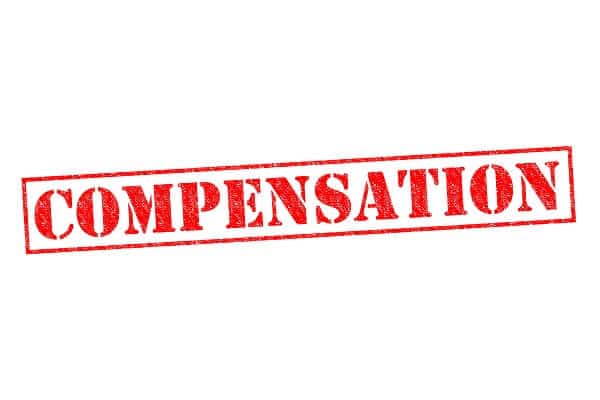The 10 Essential Components You Need To Maximize The Compensation You May Be Seeking

In order to prove the extent of your losses after a serious accident, along with seeking prompt medical attention and legal representation, one of the best things you can do is to start keeping an Injury and Symptom Diary. This is a place – a notebook, a calendar, a computer file, or an app on your phone – where you record all of the ways that your injuries impact your life. Here are some tips for keeping an Injury and Symptom Diary after an accident in Tampa, FL:
Your Injury and Symptom Diary: 10 Essential Components
In most cases, an Injury and Symptom Diary should include the following types of information:
1. Pain Location
Where do you feel pain? Keep detailed notes on the pain you experience as a result of your injuries. Is it on your left or right side (or both)? Is it localized or does it radiate throughout an area of your body? Can you pinpoint the exact area where the pain occurs?
2. Pain Level
In addition to pain location, keep a record of your pain levels throughout the day. Does it hurt more when you get out of bed? Does the pain subside when you take your medications? Are your pain levels improving, or have they remained consistent (or gotten worse) since the accident?
3. Doctor’s Appointments
Make sure you write down all of your doctor’s appointments in your Injury and Symptom Diary, and confirm that you attended them. Take notes on what you were told during the appointment, record your mileage for getting to the doctor’s office, and list any medical costs you incurred.
4. Doctor’s Orders
After an accident, you need to follow your doctor’s orders. If you are told to rest, rest and record it in your Injury and Symptom Diary. If you are supposed to do exercises, do them and write it down. You want to be able to show that you are doing everything you can to get better as quickly as possible.
5. Medications
Keep a list of your prescription and over-the-counter medications, and keep track of when you take them. Once again, you should follow your doctor’s orders as closely as possible. If you have an issue with any of your medications, don’t just stop taking it – see your doctor for an alternate recommendation.
6. Time Missed from Work
In your Injury and Symptom Diary, keep a log of the days and hours you miss from work. Make a note of whether you used vacation time or sick leave, and record why you missed the time (e.g., you were resting on doctor’s orders, you were in too much pain, or you had to attend a doctor’s appointment).
7. Time Missed from Family and Friends
Keep a log of any special events and other times you are unable to spend with family and friends. Are you in too much pain to go to your child’s game or attend a friend’s birthday party? Are you staying home on weekends while your family and friends do things without you? These are all losses that will factor into your claim for compensation.
8. Inability to Perform Household Tasks
Is it painful to do dishes or unload the dishwasher? Are you no longer able to vacuum or mow the lawn? Did you need to hire someone to fix something because your injury prevented you from fixing it yourself? These types of issues are also relevant to your financial recovery.
9. Inability to Enjoy Hobbies
Similarly, no longer being able to enjoy your hobbies is a “compensable” loss, as well. If you cannot run or go to the gym, if you cannot go golfing, if you cannot play your musical instrument, if you cannot work on your car, if you cannot do anything that you used to enjoy, write it down in your Injury and Symptom Diary.
10. Additional Expenses
Finally, along with your medical bills, keep track of any other expenses you incur related to your injuries. This includes fuel costs to get to the doctor’s office or pharmacy, anyone you needed to pay for help around the house, and any other expenses you would not have otherwise incurred.
Your Injury and Symptom Diary: Dos and Don’ts
How to Keep Your Injury and Symptom Diary
- Make it a habit. Update your diary or journal at least once daily, and more frequently if you experience negative effects from your injuries throughout the day.
- Be detailed. There is no such thing as too much detail. Dates, times, names, locations, and specifics about your pain and limitations – these are all key details to include with every entry.
- Write clearly. Your Injury and Symptom Diary won’t do you much good if no one can read it. Take the time to write legibly, or type your entries on your phone or computer.
How Not to Keep Your Injury and Symptom Diary
- Don’t exaggerate. It is important not to exaggerate the effects of your injuries. Just be honest, and your story will speak for itself.
- Don’t be generic. Avoid generic entries like, “I felt worse than yesterday,” or “No change.” Remember, the details matter. Think about your specific symptoms and how they change (or don’t change) from one day to the next.
- Don’t be repetitive. Avoid writing the same thing every day. This may be fine for certain things (i.e., “I missed work on doctor’s orders.”), but when it comes to describing the effects of your injuries, you should focus on what makes each day unique.
Injured in Tampa or Clearwater? Contact Us for a Free Consultation
If you were injured in an accident in the Tampa Bay area and would like to speak with an attorney about filing a claim to seek compensation, contact Abrahamson & Uiterwyk. Our attorneys have decades of experience and have recovered millions of dollars for accident victims throughout Florida. To get started with a free consultation, call (800) 538-4878, start a Live Chat or send us a message online now.

